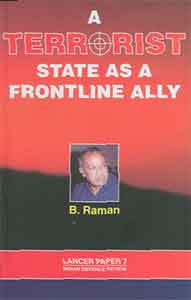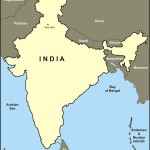Pakistans pressure on the Taliban to surrender Pakistani terrorists coincided with the Talibans own decision to banish Lashkar-e-Jhangvi and Jaish from Afghanistan. This was followed by a flurry of arrests of Lashkar-e-Jhangvi terrorists on their return to Pakistan
“In the following month, Jaish was also involved in the alleged killing of a Harkat militant in Kabul (Daily Insaf, June 27, 2000), which led to a case of qisas being registered in the Taliban court. Despite summons, the leaders of Jaish did not appear in court to defend their militants.
“Meanwhile, another rumour reached Lahore about a serious incident caused by Jaish and Lashkar militants in Kabul. Six members of the Jaish were found guilty by a Taliban court of the rape and murder of a Shia family and were executed. This news was never fonfirmed but the upshot was that the Taliban authorities closed the Reshkor camp and banished Jaish and Lashkar-e-Jhangvi militants form Afghanistan.
“In Pakista, the jaish emerged as the more radical and more sectarian part of the Harkat because of its Sipah-e-Sahaba background. Maulana Yousuf Ludhianvi, it is said, inclined towards their creed more than to Harkat’s moderate view. Mufti Shamzai seemed to vacillate between the tow splinter groups, thus allowing the Harkat’s over-all leader Fazlur Rehman Khalil to be eclipsed.
“Finding himself thus isolated, Khalil is said to have gone to Osama bin Laden and made up some of his losses by getting from him 12 new double-cabin pick-up trucks to replace those ruined by the Jaish in Punjab. It is said that the split in the old Harkat-ul-Mujahideen was so deep that Maulana Fzlur Rehman did not find himself in a position to prevent armed clashed between them.
“Meanwhile, the image of Masood Szhar was greatly enhanced in Punjab when he was slowed to travel to Lahore with scores of Kalamhnikov-bearing guards. The agencies restrained him only when his statements against the Musharraf Government became too aggressive.
The Afghan Jehad as a model for Kashmir could not have suited Pakistan in the long run because of its inherent lack of discipline and organisation and the consequent “˜softness among the militias to penetration by informers damaging Islamabads policy of “˜deniability.
“Meanwhile, Pakistan’s pressure on the Taliban to surrender Pakistani terrorists coincided with the Taliban’s own decision to banish Lashkar-e-Jhangvi and Jaish from Afghanistan. This was followed by a flurry of arrests of Lashkar-e-Jhangvi terrorists on their return to Pakistan in June and July. The Lashkar leader Riaz Basra is said to have disappeared in Afghanistan to avoid being caught by Pakistan.
“The Taliban have closed other militant training camps, including one in Zhavar built by Osama bin Laden during the Afghan War with the help of forced labour from Soviet POWs. This closure is bound to have effect on the Sipah-Taliban ties based on the former’s running blood-feud with the Shia community of the Kurram Agency considered hostile by the Taliban.
“Another split nearly happened in 1997 in the Lashkar-i-Toiba headed by Hafiz Mohammad Saeed, also a former head of the Islamiat Department of the Engineering University in Lahore. The Department came to be controlled by its teachers, Prof Hafiz Mohammed Saeed, Prof Zafar Iqbal and Prof Makki. These teachers were greatly influenced by the Ahle Hadith faith based on direct contacts with Saudi Arabia.
“There was resentment in the collective leadership about Hafiz Saeed’s tendency to give important posts to his Gujjar biradari. A number of meetings took place amongst the Doctors’ Wing of the Lashkar headed by Dr Ayub of the Urology Department at Mayo Hospital, which proposed replacing Hafiz Saeed with Dr Zafar Iqbal. The split was prevented through timely organisational reform by Hafiz Saeed. The rumour was that the split was being engineered by an ISI Major.
Azzam was the main motivational force in the Arab world for the Afghan Jehad (holy war) against the former Soviet Union. Bin Laden fought, and helped finance opposition to the Soviet invasion of Afghanistan.
“It is not surprising that the jehadi militias have begun to split. This tendency, as we have seen, has been there since 1996, but in the year 2000 the additional element of Jehad fatigue is also to be considered. The Afghan Jehad as a model for Kashmir could not have suited Pakistan in the long run because of its inherent lack of discipline and organisation and the consequent ‘softness’ among the militias to penetration by informers damaging Islamabad’s policy of ‘deniability’.
”The Afghan Jehad was also split in its early stages. The splits were to the advantage of the agencies handling them, who then established better control over the Jehad. The splits in the Kashmir Jehad, engineered or not, must redound to the advantage of its handlers for the same reason.”
The Asia Times of August 22, 2001, reported as follows:
“A very strong Muslim lobby has emerged to protect his (bin Laden’s) interests. This includes Saudi Crown Prince Abdullah, as well as senior Pakistani Generals. Prince Abdullah has good relations with bin Laden as both are disciples of the slain Doctor Abdullah Azzam, a Palestinian scholar and former leader of the Muslim Brotherhood Organisation (Al-Iqwanul Muslamoon). Azzam was the main motivational force in the Arab world for the Afghan Jehad (holy war) against the former Soviet Union. Bin Laden fought, and helped finance opposition to the Soviet invasion of Afghanistan.
 “Focus has been on Pakistan as a staging ground for a mission to arrest bin Laden since the US Central Command Chief General Tommy R Franks met President General Pervez Musharraf and other senior Pakistani military officials in Rawalpindi in January this year. This and subsequent meetings were used to remind Pakistan of its obligations in compliance with the UN resolution 1333 that require the Taliban to immediately surrender bin Laden to a third country. Pakistan, along with Saudi Arabia and the United Arab Emirates, are the only countries to recognise the Taliban Government. (Author’s comment: Saudi Arabia and the UAE have since severed diplomatic relations with the Taliban.)“Saudi Arabian Crown Prince Abdullah, meanwhile, wants bin Laden to stand trial in his country. He is said to believe that any trial against the fugitive would see him acquitted as no case has been registered against him in Saudi Arabia. In addition, there is no precedent of Saudi Arabia ever handing over one of its citizens to the United States (even though bin Laden has technically lost his Saudi citizenship), so the Crown Prince considers that bin Laden will be safer in Saudi Arabia than in Afghanistan.
“Focus has been on Pakistan as a staging ground for a mission to arrest bin Laden since the US Central Command Chief General Tommy R Franks met President General Pervez Musharraf and other senior Pakistani military officials in Rawalpindi in January this year. This and subsequent meetings were used to remind Pakistan of its obligations in compliance with the UN resolution 1333 that require the Taliban to immediately surrender bin Laden to a third country. Pakistan, along with Saudi Arabia and the United Arab Emirates, are the only countries to recognise the Taliban Government. (Author’s comment: Saudi Arabia and the UAE have since severed diplomatic relations with the Taliban.)“Saudi Arabian Crown Prince Abdullah, meanwhile, wants bin Laden to stand trial in his country. He is said to believe that any trial against the fugitive would see him acquitted as no case has been registered against him in Saudi Arabia. In addition, there is no precedent of Saudi Arabia ever handing over one of its citizens to the United States (even though bin Laden has technically lost his Saudi citizenship), so the Crown Prince considers that bin Laden will be safer in Saudi Arabia than in Afghanistan.
“Bin Laden left Saudi Arabia in 1991. He was asked by the Saudi Government to return, but he refused, so they withdrew his citizenship, cancelled his passport and froze his assets. Bin Laden is believed to have amassed a fortune through his family’s construction business.




